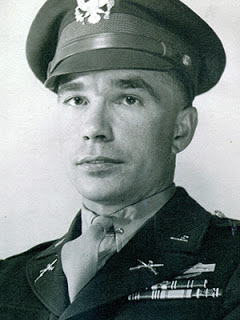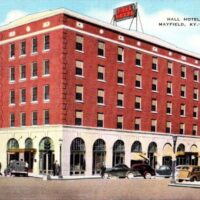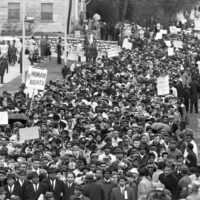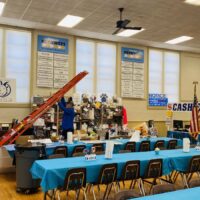A year ago on Memorial Day 2020, Kentucky Educational Television premiered a documentary about a soldier from one of the most isolated places in America who repeatedly put his life on the line for his country — but quietly returned to his very rural life and wasn’t fully honored for his heroism until 73 years later.

“From Honor to Medal: The Story of Garlin M. Conner,” will air again on KET’s Kentucky Channel at 8/7 p.m. ET/CT Monday, May 31, and is available online at www.ket.org.
The hour-long documentary tells the story of one of the most decorated soldiers of World War II, who received the nation’s highest military decoration only after a 20-year campaign by his widow and friends.
Their campaign ended in June 2018, at the White House, when then-President Trump presented the medal to Pauline Conner, who still lives on their small farm near Albany, just down the road from their son Paul. Soon she plans to deliver his military memorabilia to the Third Infantry Division museum at Fort Stewart, Georgia, where there is a Murl Conner Room, next to the Audie Murphy Room.
The two soldiers are a study in commonality and contrasts. Murphy, a son of Texas sharecroppers, won the Medal of Honor for his heroism in northeastern France on Jan. 26, 1945. He returned to the U.S. as perhaps the most decorated American soldier of the war, and became a major movie star.
Conner, who knew Murphy, earned the medal the day before and just a few miles away, but in the fog of war only got the Distinguished Service Cross. He returned to a creekside farm in Southern Kentucky’s Cumberland River valley with no electricity or running water. Like most soldiers, he rarely talked about his exploits, which included suffering many wounds and earning four Silver Stars.
Only after Conner died in 1998 was his story told — first by a rank stranger who became his greatest advocate and inspired others to join his campaign to get Conner the Medal of Honor. Led by a neighbor who wouldn’t take no for an answer, they struggled for 20 years to break through Army bureaucracy, losing at every turn — but remaining inspired by Conner’s examples of determination and resolve.
Conner, fresh out of a hospital for a serious wound, volunteered to be a forward observer for artillery that was needed to stop a German attack — an attack that came so close he finally called in artillery on his own position. His commanding officer said he should receive the highest possible medal, but the officer was wounded the next day and didn’t follow up.
The follow-up came decades later, from Richard Chilton, a Green Beret veteran from Genoa City, Wisconsin, who met Conner and learned his story while researching the service of his uncle, who died at Anzio under Conner’s command; and from Walton “Chip” Haddix of Albany, Kentucky, who took up the campaign begun by Chilton and wouldn’t take no for an answer. The Army finally relented.
The documentary was produced by Lexington filmmaker Jeff Hoagland and the Institute for Rural Journalism and Community Issues at the University of Kentucky. It was sponsored by private donors and the Veterans Trust Fund of the Kentucky Department for Veterans Affairs, a state agency that assisted the Conner team’s legal efforts at the direction of then-Commissioner Heather French Henry, whose cause was veterans when she was Miss America.
Trailers for the documentary are online at honortomedal.us, along with information about Murl Conner and some of the major players in the effort to get him the Medal of Honor. The program has been aired by public TV stations in other states; check local listings for broadcasts outside Kentucky. DVDs of the documentary are available from the Institute for $29.95, by emailing al.cross@uky.edu.





